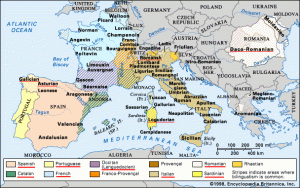One of the first warnings I received in law school was to not pick over the language and grammar of ‘mere mortals.’ In other words, non-lawyers. It won’t win you friends, they said.
Nor will it endear you to your spouse.
Sure enough, it didn’t take a month before I caught myself saying something to my wife along the lines of “What do you mean by when you say ‘that thing?'” Her response was an exasperated throwing of her hands in the air, a dirty look, and a quick end to the conversation.
Yes, for better or for worse, lawyers tend to be language and grammar sticklers, for using the right words, and especially when the language is in the opposing party’s motions or drafts. It is not without good reason. It makes a difference in how and what you say to the judge.
Language matters, but not just to lawyers. We all communicate, and even if interpersonal communications include the non-verbal, a lot of it is what we say and what we write. It’s supposed to convey our thoughts. If we cannot do it well–use the right words and use them the right way–then we will fail to communicate effectively.
So, when I ran into an interview on language and the mind, I was immediately interested. What we think and how we think is crucial to how we interact and what we believe, I thought. But perhaps it is not as simple as that.
 In the interview, Robert Lane Greene acknowledges the perception–perhaps wrongly held–that language significantly affects what people think and believe. It’s Nineteen Eighty-Four and Newspeak type stuff. It does, but not as much as we believed in the past.
In the interview, Robert Lane Greene acknowledges the perception–perhaps wrongly held–that language significantly affects what people think and believe. It’s Nineteen Eighty-Four and Newspeak type stuff. It does, but not as much as we believed in the past.
A lot of those misconceptions have to do with language and cognition, i.e. language and the brain. For example, a lot of people believe that the language that you speak alters your thought in really profound and deep ways. It’s one of the most common themes of the 20th century, and it came from a couple of linguists working early in the century. Since then you have people who will come up and tell you, with a totally straight face: ‘These people have no word for x so they can’t think about it.’ This really informed George Orwell in 1984: in the Newspeak language, if you got rid of words like ‘freedom’, those words would become, as Orwell put it, literally unthinkable.
Just because a word does not perfectly translate from one language to the next does not mean the concept does not exist. On the contrary. Greene goes on:
But now some pretty clever researchers are finding out ways where different languages really do influence how we think. The effects are a lot more subtle. They’re very interesting, but they’re not as dramatic or as romantic as the early versions.
 For example, the gendered noun. Anyone who has studied a romance language (French, Spanish, Italian or Romanian, among others) knows that words in those languages have gender, as do German words.
For example, the gendered noun. Anyone who has studied a romance language (French, Spanish, Italian or Romanian, among others) knows that words in those languages have gender, as do German words.
Germans describe a key as rigid and hard and strong. That’s because it’s masculine in German. Spaniards will describe a key as feminine, as gold and tiny and beautiful, because it’s feminine in Spanish.
But do the rules matter? Or is grammar arbitrary? When my friend complains about the use of “Fail,” is he justified, or is he fighting a losing battle? Is language more flexible than that?
Most grammar grouches have a fairly authoritarian approach to language. They have this idea that somewhere, somehow, there is somebody making rules, or that there are just hard and fast rules that have to be enforced, and people humiliated out of violating them.
But it’s more instinctual than that:
It turns out that you know all these rules but you don’t even know that you know them. They are your internal language processing device. And to study that is much more fascinating than whether or not you should begin a sentence with ‘however’, which some people think you shouldn’t be able to do.
 It’s a great article/interview, and it references some great looking books, at least one of which I know I’ll be picking up in the near term. Check it out, and watch how you use language–there’s more to it than you think.
It’s a great article/interview, and it references some great looking books, at least one of which I know I’ll be picking up in the near term. Check it out, and watch how you use language–there’s more to it than you think.
In the meantime, my wife still refers to “things” and I still, occasionally, ask “which ‘things?'” We’re working on it.
Related articles
- From Cicero to Lynne Truss with Robert Lane Greene (patrickcox.wordpress.com)
- Language News: Book Review – You Are What You Speak – By Robert Lane Greene – NYTimes.com (lingeducator.com)
- Newspeak Propaganda – Just another way to dupe ordinary Americans (iflizwerequeen.com)





Great post!